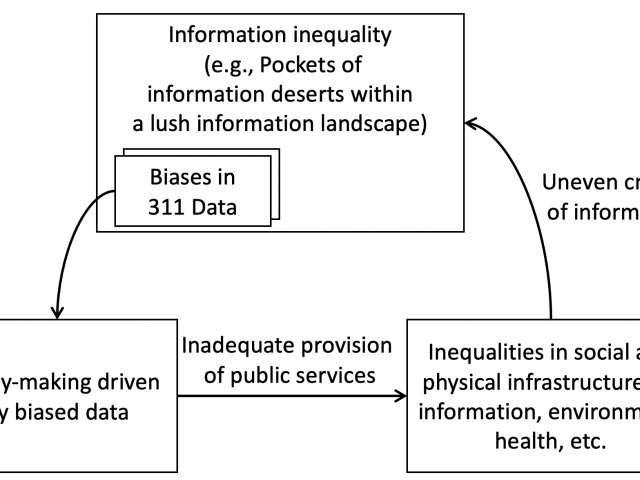
While civic technologies for public issues and services such as 311 systems are widely adopted in many U.S. cities, the impact of the emerging civic technologies and their datalevel dynamics are unclear. Because the provision patterns of civic issues to technological systems are different across neighborhoods and populations, it is difficult for city officials to understand whether the provided data itself reflects civic issues. Also, the disparities in the information provided to civic technologies in different neighborhoods may exacerbate the existing inequality. To understand how civic data is created and how people’s use of civic technologies plays a role as an intermediary process in shaping community performances, we take an information deserts perspective in studying 311 systems. The concept of information deserts is informed by a material understanding of local information landscapes, making it possible to distinguish local information’s structural features from its social-construction process. Based on this theoretical lens, we suggest new opportunities for civic technology and data research.
Lee, M., Harlow, J., Gordon, E., Wang, J., Jonston, E., Janzen, S., & Winter, S. (2020). Toward Understanding Civic Data Bias in 311 Systems: An Information Deserts Perspective. In CSCW Workshop on Civic Technologies: Research, Practice, and Open Challenges, ACM CSCW 2020, Miami, FL. October 17th.